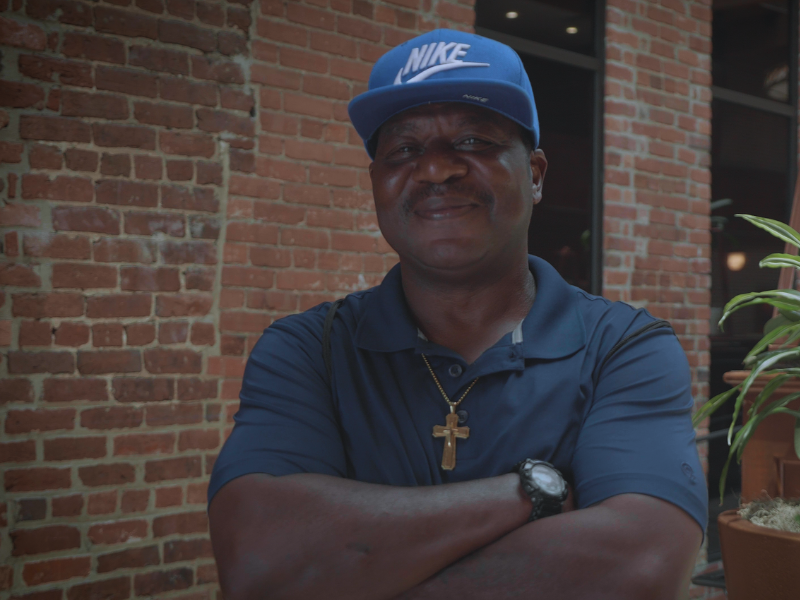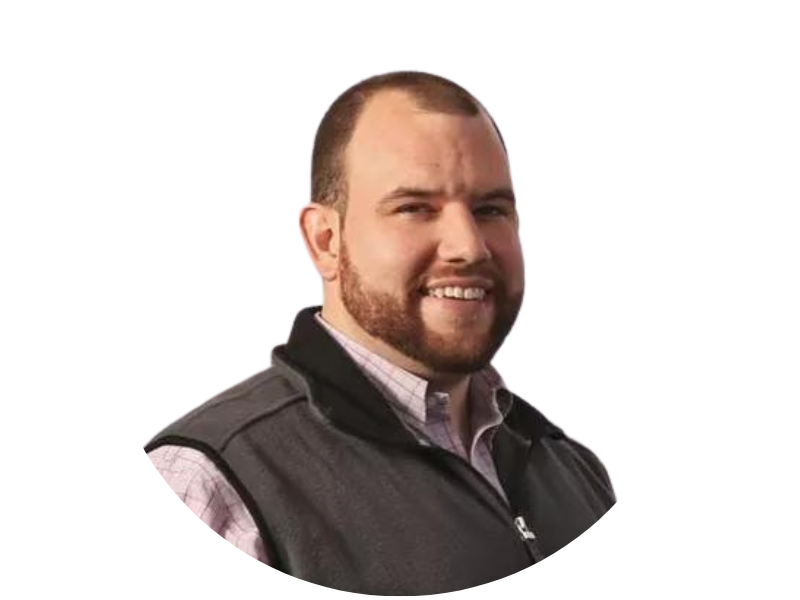
Eddie’s story: Moving from homelessness to a housing and a stable job

Eddie’s story: Moving from homelessness to a housing and a stable job
Key Points
- Eddie was homeless and living on the streets.
- With a home secured, Eddie’s next step was to find more permanent work
- Eddie is excited and proud to have taken steps toward building the life he wants.
“I look forward to moving on up.”
That’s how Eddie Craig describes his current career aspirations. He has light in his eyes and hope in his heart, now that he has a steady job and a place to call home. But life wasn’t always so good for Eddie.
Eddie spent nearly five years on the street, homeless and working odd jobs. He earned money by raking and mowing yards, but it wasn’t enough to pay for a place to live. Every night, he slept in his car.
Then, he came to Home For Good, where he got in touch with an advocate named Ms. Terry. One morning, Ms. Terry located his car, where she woke him and introduced herself.
“I heard her tap on the car window one morning. To be honest with you, I thought it was the police, because they were white,” Eddie says. “But I stepped out of the car and found out her name was Ms. Terry. She got my name and everything.”
For about a month, Ms. Terry worked with Eddie to find affordable housing.
“The next thing I knew, she was calling me to tell me I had my own place,” he says. “We went over there and checked it out. I didn’t care what it looked like. She said, ‘You like it?’ I said, ‘Yeah, I like it, no problem.’”
With his housing secure, Eddie’s next step was to find more permanent work. That’s where BETTER WORK Columbus stepped in. Eddie attended a job fair hosted by BETTER WORK. Eddie met Kristin, who went on to help him complete his hiring paperwork and get his questions answered.
“Between BETTER WORK and Home For Good, getting Eddie into housing and a steady job was a team effort,” Kristin says.
Unfortunately, once Eddie was hired at his first job through BETTER WORK, reliable transportation proved to be an obstacle. His employer changed his schedule to another shift, and he couldn’t get to work. Still, he was determined to find another job, so he reached back out to BETTER WORK for help any time he encountered a roadblock.
“He succeeded because he didn’t give up,” Kristin says.
Fortunately, Eddie was able to get connected at a new job with the Marriott Hotel, where he’s happily employed and thriving. Since Eddie doesn’t have a formal education, Kristin and Ms. Terry helped him complete and submit his application paperwork. Along the way, he also got help obtaining the identifying documentation he needed to get hired — items such as his birth certificate, ID, and Social Security card.
“I had to start from the bottom,” he says.
Eddie credits Kristin for the job and Ms. Terry for his escape from homelessness.
“Thank God for BETTER WORK,” says Eddie. “I’m a living witness this has helped me.”
“Thank God for BETTER WORK,” says Eddie. “I’m a living witness this has helped me.”
“Thank God for BETTER WORK,” says Eddie. “I’m a living witness this has helped me.”
Eddie’s success story at BETTER WORK is largely attributed to the fact that he had a genuine desire to earn an honest living for himself. He knew others in the homeless community who didn’t share his drive, but he was determined to build a better future for himself.
“I consider myself physically healthy and mentally healthy,” he says. “As far as a paycheck, everybody loves a paycheck.”
For others like Eddie who are looking for a steady job, he offers reassurance that the team at BETTER WORK will take their interests and strengths into consideration during the job search process.
“BETTER WORK is going to help you find what you love to do,” he says. “It won’t just be digging ditches — unless you like digging ditches.”
Ultimately, Eddie is excited and proud to have taken steps toward building the life he wants. And BETTER WORK is proud to have played a part in his story.
“It’s just good to be in the workforce,” he says.










